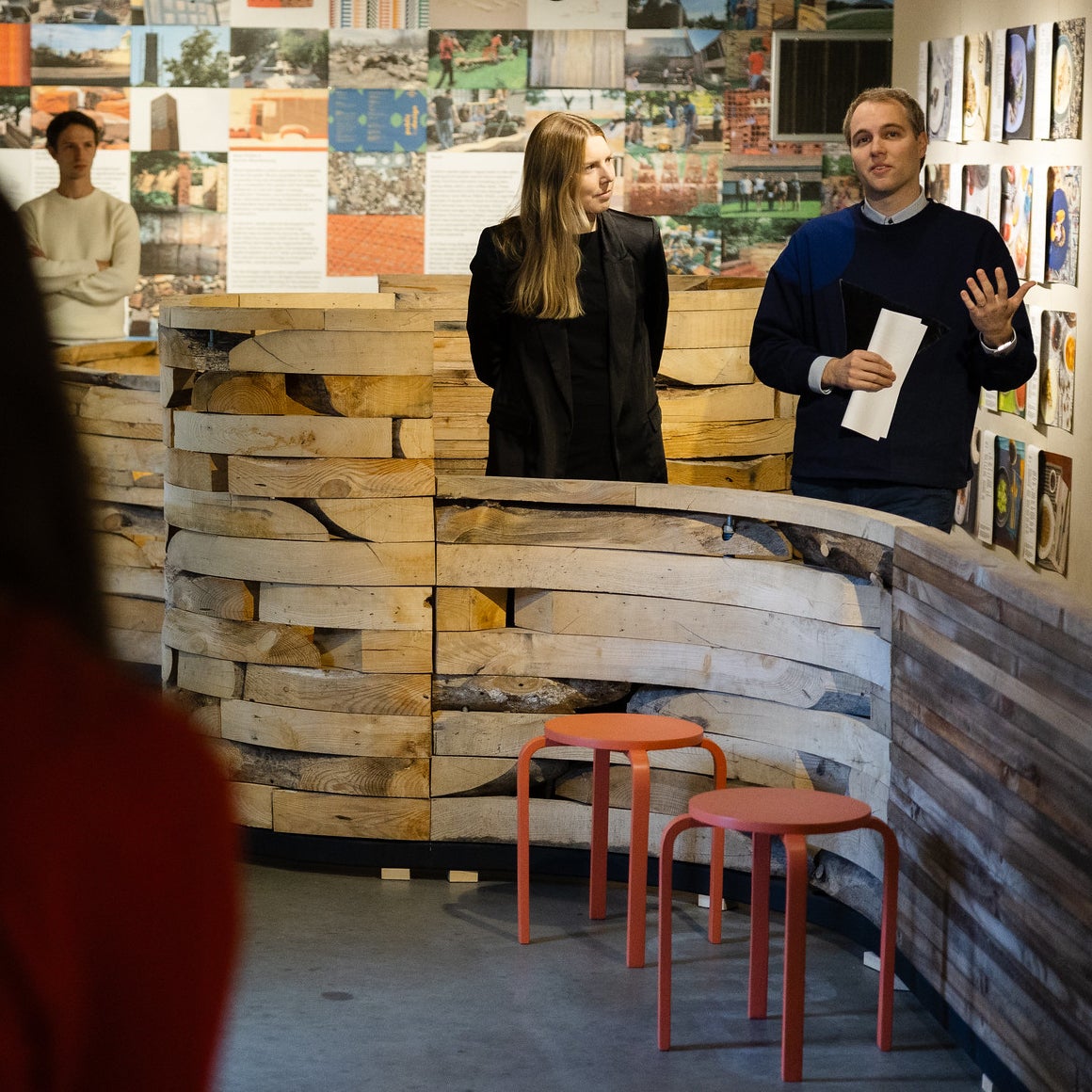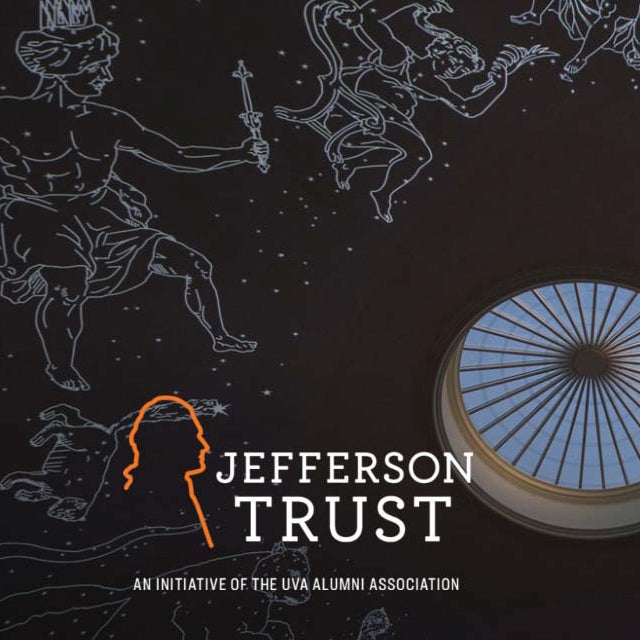
Kyle Schumann's Advanced Research Studio Wins 2024 Timber Education Prize
The Softwood Lumber Board (SLB) and the Association of Collegiate Schools of Architecture (ACSA) recently announced the 2024 Timber Education Prize winners. Established in 2022, this annual prize recognizes effective and innovative curricula that create a stimulating and evidence-based environment for learning about structural lumber systems.
From seminars and design studios to building technology classes and structured lessons, the winning courses will equip students with the knowledge and design skills to embrace wood-based solutions with confidence and enthusiasm. These courses highlight the significance of sustainable education, emphasizing the lower-carbon benefits of timber compared to traditional building technologies.
The jury selected five courses, three winners and two special merits, to receive a cash prize and support to lead their course at their host institution within the next two years. In addition, the jury selected a course to receive an honorable mention for its impact.
|
Image

|
The UVA School of Architecture's advanced research studio, Design from Tree to Timber: Building Non-Planar Futures, developed and to be taught by Assistant Professor of Architecture Kyle Schumann, was among the winning courses. The competition jury noted, "This is a fantastic course proposal that delves into timber production. The blend of material and technological processes makes for a compelling [research and studio] course."
DESIGN FROM TREE TO TIMBER: BUILDING NON-PLANAR FUTURES
ADVANCED RESEARCH STUDIO
DEVELOPED AND TAUGHT BY KYLE SCHUMANN
SPRING 2025

This advanced research studio addresses questions of sustainable wood construction early in the material pipeline by interrogating the production of timber buildings beginning with the milling of logs into lumber. The course asks: How might the irregularities present in trees be strategically incorporated into construction and design processes? How can novel fabrication technologies facilitate the understanding, evaluation, and use of this material? What radically different futures for timber architecture are possible if construction is not limited to planar boards, straight columns and beams, and flat sheets?
COURSE BACKGROUND
The studio course, planned for Spring 2025 and to be taught again in subsequent semesters, will examine and reimagine material and technological processes inherent to wood construction beginning with forestry practices. Students will make use of an entirely new timber construction technology – a robotic sawmill invented by an interdisciplinary team at the University of Virginia. The course will be structured around a series of physical fabrication exercises in which elements and assemblies are built, tested, and evaluated with both quantifiable performance metrics and a narrative around the social and cultural reception of the developed material systems. The course will culminate in the realization of full-scale prototypes that prove out developed material systems and present their architectural potentials.
The course is planned as a six credit advanced research and design studio. It is interdisciplinary and vertically integrated, available to B.S.Arch., M.Arch., and MLA students. Students will learn to evaluate irregular timber materials through 3D scanning and custom machine visioning techniques, design strategies for novel non-standard timber assemblies, and physically fabricate 1:1 material prototypes.

RESEARCH MERIT
Non-planar timber presents opportunities to expand the use of carbon-sequestering materials in construction, building on the recent success of mass timber systems including Cross-Laminated Timber (CLT) and Mass Plywood Panels (MPP). The UVA robotic sawmill technology enables the use of wood that is too irregular for conventional milling processes, creating opportunities to increase material utilization rates and efficiencies, as well as the ability to incorporate natural material geometries into the construction of building components. Additionally, the technology proposes additional value-added manufacturing, through the use of wall or floor geometry to improve performance characteristics (for example, using wall geometry to produce lateral stiffness) and enable new formal and spatial opportunities in buildings.
According to a 2022 study by the UVA Weldon Cooper Center for Public Service (“The Economic Impact of the Agriculture and Forest Industries in Virginia,” Terry Rephann), forest products and industries account for $23.6 billion annually and support over 108,000 jobs in the Commonwealth. Forestry and forest products represent the third-largest private industry in Virginia. This course will empower students to engage with and innovate within this economically and environmentally critical industry.

SUSTAINED PARTNERSHIPS
Working toward the first implementation of the course in spring 2025, relationships will be built to secure opportunities for material acquisition, industry partnerships, and additional funding. Local partners will be contacted for possible site visits, including local sawmills and a wood truss assembly plant. Schumann will continue collaborating with UVA Sawmilling, a university group that saves campus waste logs from the chipper and makes them available for student projects and faculty research. Through building the course, opportunities to bring research into the world will be pursued through external funding sources, including from NSF, USFS, and USDA, as well as other forestry and wood construction organizations and commercial wood industry partners.
FULL LIST OF RECOGNIZED COURSE PROPOSALS
WINNERS
Design from Tree to Timber: Building Non-Planar Futures
Kyle Schumann, University of Virginia
Forest – Fiber – Frame
Philip Tidwell, University of California, Berkeley
Exploring the X, Y, and Z Wood Connection
Nicholas Wickersham, North Dakota State University
SPECIAL MERIT
A Holistic Approach to Timber Construction in a Regenerative Design Framework
Veronica Madonna, Athabasca University
Mass Timber as Naked Material
Jordan Kanter & Ray K. Mann, UMass Amherst
HONORABLE MENTION
Compoundologies – Timber, Folklore, and the Community Irrigation Networks of Chiang Mai
Tommy Yang, Carnegie Mellon University
The five winning course proposals will be presented at the 2025 ACSA113 Annual Meeting in New Orleans, LA.
For the last two years, the SLB has funded this competition with the goal of advancing deeper investigations into wood design at all schools of architecture. Developed course syllabi are available at the ACSA website (link below).


